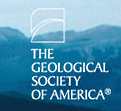 Three students from The University of Toledo had the opportunity to present at the 2010 annual meeting of the Geological Society of America in which scientists came from all over the world to share their research.
Three students from The University of Toledo had the opportunity to present at the 2010 annual meeting of the Geological Society of America in which scientists came from all over the world to share their research.
UT geology and environmental studies students Joel Banaszak, Wade Shaver and Kirk Zmijewski spent Oct. 31 through Nov. 3 at the Colorado Convention Center in Denver for the conference, which had the theme of “Reaching New Peaks in Geoscience.”
 “I appreciated the feedback from other scientists and enjoyed getting to know people who are working in the same field,” said Banaszak, a second year graduate student. “The number of people may seem intimidating at first, but soon you realize that you’ve surrounded yourself with 6,000 people who are truly interested in what you are doing.”
“I appreciated the feedback from other scientists and enjoyed getting to know people who are working in the same field,” said Banaszak, a second year graduate student. “The number of people may seem intimidating at first, but soon you realize that you’ve surrounded yourself with 6,000 people who are truly interested in what you are doing.”
Banaszak presented on the geology and geomorphology of the Indian River Bay watershed in Delaware, which during the past 125,000 years has recorded the repeated waxing and waning of sea level.
Banaszak and co-author Dr. David Krantz, UT associate professor of geology, conducted a monthlong research expedition that included observations of numerous former shorelines, estuaries, and other coastal landforms that are still apparent not only on the land surface, but also in the subsurface geology.
Zmijewski, who is a senior at UT, completed his presentation on the effect of agricultural practices on sediment and nutrient loading in the Maumee River to determine whether conservation tillage techniques, which attempt to reduce sediment loads, actually have a potentially negative impact correlated to a recent increase of Microcystis blooms seen in Lake Erie. Microcystis is a type of blue-green algae (or cyanobacteria) that produces toxins that can be harmful to wildlife and potentially human health.
Zmijewski said he found the input he received from the conference critical in preparing his research for publication in the future.
Shaver, a senior focusing in environmental science, spoke at the conference about the assessment of wetland integrity through climate change scenarios with remote sensing platforms.
Zmijewski and Shaver wrote their presentations with co-author and adviser Dr. Richard Becker, assistant professor of environmental sciences.
“I really enjoyed making more connections, talking to people with similar interests, scouting for prospective grad school programs, and having an overall great experience,” Shaver said.